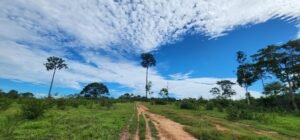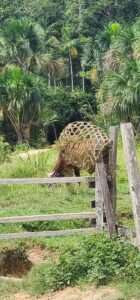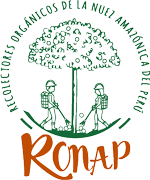1. Business Description
The Association of Organic Collectors of the Amazonian Nut of Peru was founded in February 2004 and began its activities in that year, starting with 42 collecting partners. Currently, RONAP is made up of more than 50 chestnut partners (44,189.81 ha) and has a technical team composed of sons and daughters of chestnut partners who work together for the Amazon forests of Madre de Dios, within the axis of the Peru-Brazil Interoceanic Highway, in the populated districts of Alerta, La Novia and Mavila. In 2018, RONAP reinvented itself and achieved its first export of a ton of organic chestnut to Italy and, in 2019, managed to export organic chestnut to the United States and other markets.
RONAP was established as a non-profit association, based on the sustainable management of chestnut concessions, as well as on good harvesting and post-harvest practices, as priority steps to ensure the quality of the chestnut, considering its status as an organically certified product. Likewise,8 it promotes and contributes to the social, economic and cultural development of chestnut growers and their families. Part of the association's success is that it works together with strategic partners who provide technical and financial advice and the service of processing and transformation of chestnuts and their derivatives; such as in the commercial part with the company CANDOR LATAM, in the institutional part with NGOs Cesvi, Rain Forest, ACCA and governmental and research institutions such as MINAGRI (Ministry of Agriculture and Irrigation) - Sierra y Selva Exportadora, SERFOR CAF Program, MINAM ASBYSE Project, IIAP MDD and UNAMAD.

RONAP exports raw Brazil nuts, an Amazonian nut rich in healthy fats, antioxidants, vitamins and minerals. The association's current production is 4,000 barrels per year (one barrel is equivalent to 66 kg wet weight, 35 kg dry weight, 20 kg peeled), and it has the capacity to expand the areas of exploitation in accordance with the growth of demand. The main market it serves is the national market, especially exporting companies, but as mentioned above, RONAP also has the capacity to serve the international market. The association eliminates intermediaries and acquires the nuts directly from its Brazil nut harvesting partners in Madre de Dios (Peru), which guarantees that they receive fair prices for their products.
2. Differentiated strategies

Another strategy that sets RONAP apart is that the technical team is made up mostly of children of the association's chestnut growers, who have been trained in the crop since childhood and know first-hand the needs of their parents (collectors). Likewise, RONAP has a multidisciplinary and experienced technical team, never seen before, since they range from psychologists, agricultural and forestry engineers, who cover different dimensions in RONAP, from logistics, internal control, financial administration, marketing and foreign trade, social psychology, geographic information systems oriented to chestnut forest management, and provide technical assistance and emotional follow-up to members and their families on an ongoing basis: reaching the point of transferring blocks of professionals in the aforementioned areas to camp on the members' farms for a week, getting involved in the daily tasks to have a direct impact.
3. Main challenges
Over the years, RONAP has faced several challenges. Firstly, since most of the concessions are over 500 hectares in size, monitoring is very difficult and this has led to outsiders starting to deforest the extreme points of each concession. In this regard, the association found in drones and psychosocial support a solution to reduce these incidents, reaching agreements between the parties to avoid social conflicts and also preventing deforestation. Another problem that arises at the production level is the residual heavy metals in the nuts, this is due to the fact that some of the large trees absorb these metals from the depths. To this end, RONAP and several universities and organizations are carrying out research to determine the origin of these contaminants. At the moment, there are few trees identified with this problem, but they want to find a way to prevent this impact on others.











